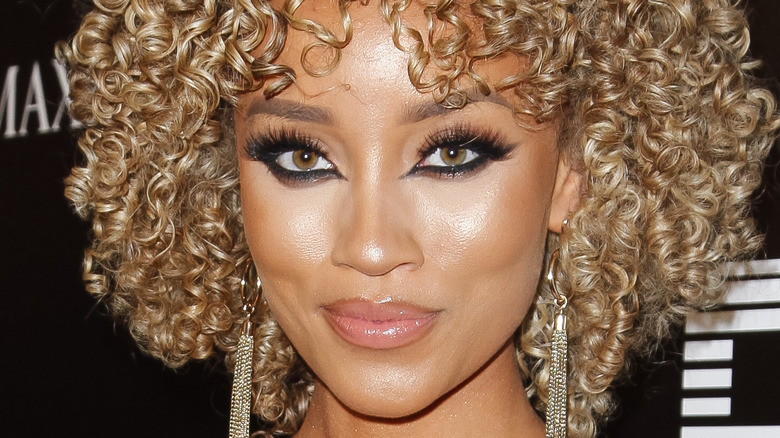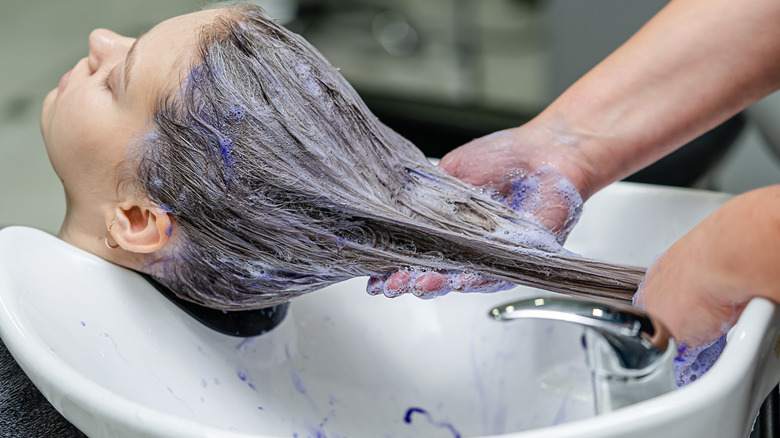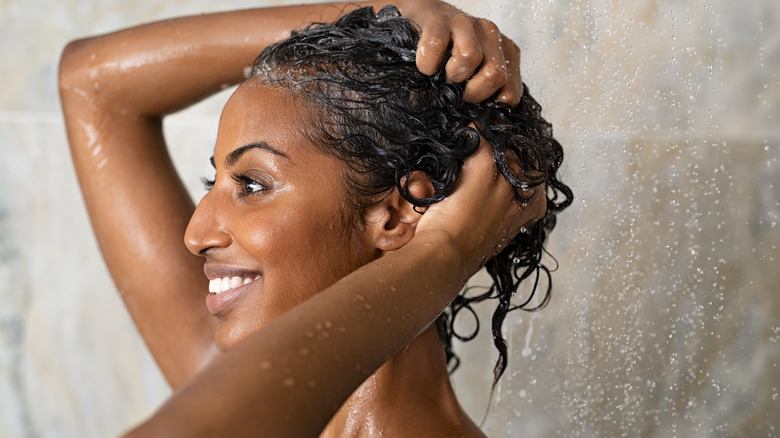Bleaching Curly Hair Without Causing Lasting Damage Is Possible With These Tips
Curly hair can feel like a blessing and a curse. Those with curly hair have a texture that straight-haired people have to spend hours every week trying to achieve. However, curly hair is often more fine and thus prone to breakage. In addition, the shape of those swirly locks leads to dehydration.
Joseph Cincotta, a cosmetic chemist for Federici Brands, told Allure that "the hair is unable to wick sebum (secreted by the sebaceous glands in the follicle) easily (or evenly) down the hair shaft from root to tip." Cincotta added that "In tight, curly hair, each of these twist points becomes a weak link and very susceptible to breakage."
That said, any hair process that is going to damage the hair is likely going to have a more severe effect on curls. So, you would think bleaching would be off the table, right? Not quite. While bleach is a notoriously harsh chemical to treat hair with, it's still possible to achieve the exact color curls you're looking for without the damage.
Precautions to take when bleaching your curls
Plenty of celebrities with natural curls have gone platinum, including Zendaya, Shakira, SJP, and Rihanna. It's possible for you to do the same. Professional colorist Nicole Kahlani explained to Refinery 29, "People think Afro hair or certain curl patterns can't be bleached — actually, it lifts easier than [other kinds of] hair." Sadly, Kahlani mentions that "it's because it lifts easier that there's more chance of damage." With this in mind, she emphasizes the importance of seeing a certified professional.
However, you shouldn't leave everything up to the professional to take care of. There are some things you can do to prepare your hair and some things you should watch for while your stylist does the job. In conversation with Bustle, hairstylist Laura Estroff suggested that you refrain from washing your hair a few days before having your hair bleached. Estroff said, "The oils from your hair help to protect your scalp during the bleaching process. Not to mention, the act of washing your hair agitates your scalp causing unnecessary irritation."
Once you are having your hair done, be wary of any stylist who wants to give you immediate, one-in-done results. This is especially true if you're going significantly lighter. Kahlani warned Refinery 29 that using a mixture with less peroxide will slow down the process and likely require more than one bleaching session. This is the key to avoid prevent your curl pattern and sucking your locks dry.
How to care for your curls post-bleach
Once your bleaching process is done, the process of protecting your hair continues. There are a number of things you must add to your hair care routine in order to prevent ongoing breakage. Shab Reslan, a certified trichologist and hairstylist disclosed to Byrdie that you'll want to purchase a clarifying shampoo to rid your hair of any product or oil. Following this, you'll want to apply deeply moisturizing conditioners and hair masks. Board-certified dermatologist Dr. Nianda Reid specified to Byrdie that you should be looking for hair products containing "humectants, emollients, glycerin, and ceramides."
Another hot tip Reslan adds is to practice "slow drying" after you've washed your hair. She describes this as "keeping [your hair] protected while drying, as in pinning it up in a bun, keeping it wrapped, or even in a pony — instead of leaving it down to air-dry or blast drying it with the blowdryer. Slowly drying your hair retains more moisture."
The last tip, which is not so "hot," is to resist applying heat on your hair. Heating tools are just another way to cause your curls distress.


